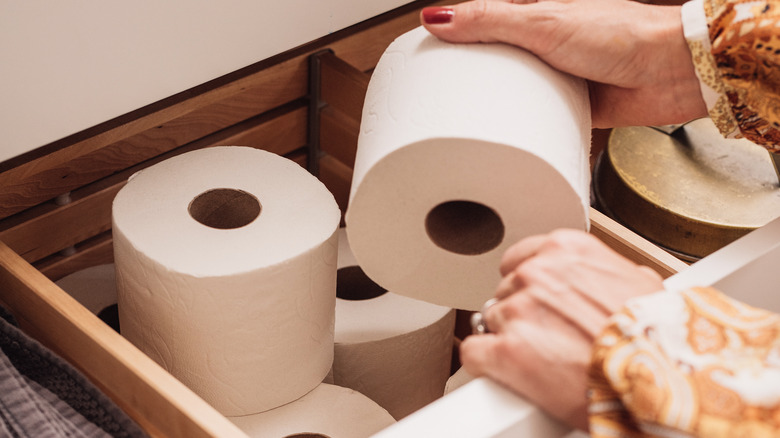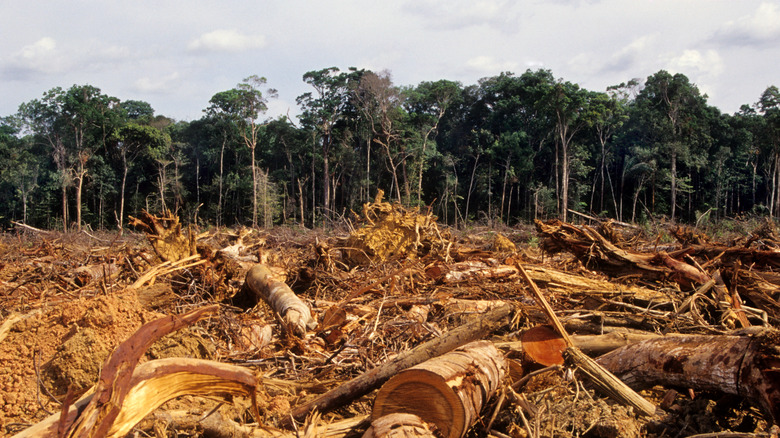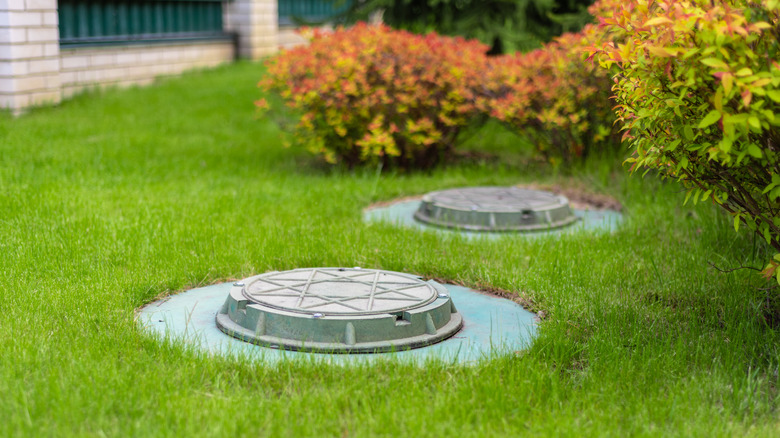Should You Be Buying Recycled Toilet Paper? Here Are The Benefits
As we become more aware of the dangers of climate change and our growing carbon footprint, more and more people are trying to live more eco-friendly lifestyles. Some might be taking large steps like investing in solar panels and shopping at zero-waste grocery stores, while others are taking smaller–but just as important–steps of switching to natural cleaners or investing in reusable everyday staples. One such staple is recycled toilet paper. At first, this sustainable toilet paper find might sound a tad off-putting. But don't worry, it's not what it sounds like. The product uses recycled paper already in circulation–such as old notebooks and office printouts–instead of virgin pulp. This helps the environment since it curbs deforestation and uses less energy and water to make.
It also benefits you and your home. Recycled toilet paper uses fewer bleaching agents, which is safer for your health. It also has weaker fibers than paper made from virgin pulp, which means it breaks apart more easily. This is great for low-flow toilets in older homes or motor homes, as well as septic tanks. Intrigued? Here are the benefits of switching to recycled toilet paper.
Benefits of recycled toilet paper on the environment
If you're considering switching from virgin pulp TP to recycled rolls, you're probably doing so to make your home more eco-friendly. If your goal is to reduce your home's carbon footprint, recycled toilet paper has plenty of green benefits. It's estimated that over 1 million trees are cut down daily to make traditional toilet paper, and many of them come from the Canadian boreal, which spans from Canada to the Arctic Circle. This is an incredibly important forest because it stores more carbon dioxide than any other on the planet. In fact, it annually removes the equivalent of 24 million car emissions. However, according to the Natural Resources Defense Council, more than 28 million acres were cut down between 1996 and 2015, which is about the size of Ohio. The forest is estimated to take over 100 years to grow back, if ever. Switching to recycled toilet paper will help curb this deforestation.
It also requires less energy and water to produce than virgin pulp rolls. According to Environment America, the production process releases 66% fewer greenhouse gas emissions. In general, creating recycled paper takes up to 70% less energy. Much less water is also used (up to half of the amount), mainly because the most energy- and water-intensive part of the process is pulping, where the wood is turned into paper fibers. Since recycled TP already has the fibers ready to go, it requires fewer resources to create.
Benefits of recycled toilet paper for you and your home
Recycled toilet paper might not be as soft as traditional rolls, but it's a healthier alternative. Virgin pulp paper uses a chlorine-free bleaching process to whiten the paper into the bright white rolls we're used to seeing. Even though its name indicates otherwise, it still releases chlorine gas and dioxins into the air and water when processed, which ends up in our food chain. As it moves up the chain and gets stored in animal bodies, we eventually consume it via our diets. According to the Journal of Environmental Science and Health, this can lead to adverse health effects such as cancer, diabetes, and heart diseases. However, recycled TP uses a gentler process called Processed Chlorine Free (PCF). This method uses oxygen and hydrogen peroxide to whiten the paper. On top of that, it requires fewer bleaching methods to begin with since the recycled paper has already gone through the bleaching process and doesn't need to be lightened more.
Using recycled paper can also be better for low-flow toilets and homes with septic tanks. Since they have weaker fibers, these toilet paper squares break up more quickly in water, lowering the risk of clogs. Its low bleach content is also beneficial for septic tanks. Bleach can ruin the bacteria biome in your tank, which helps break down the solids in the system. Without the bacteria, you will experience more backups and will have to get the tank pumped more routinely.


